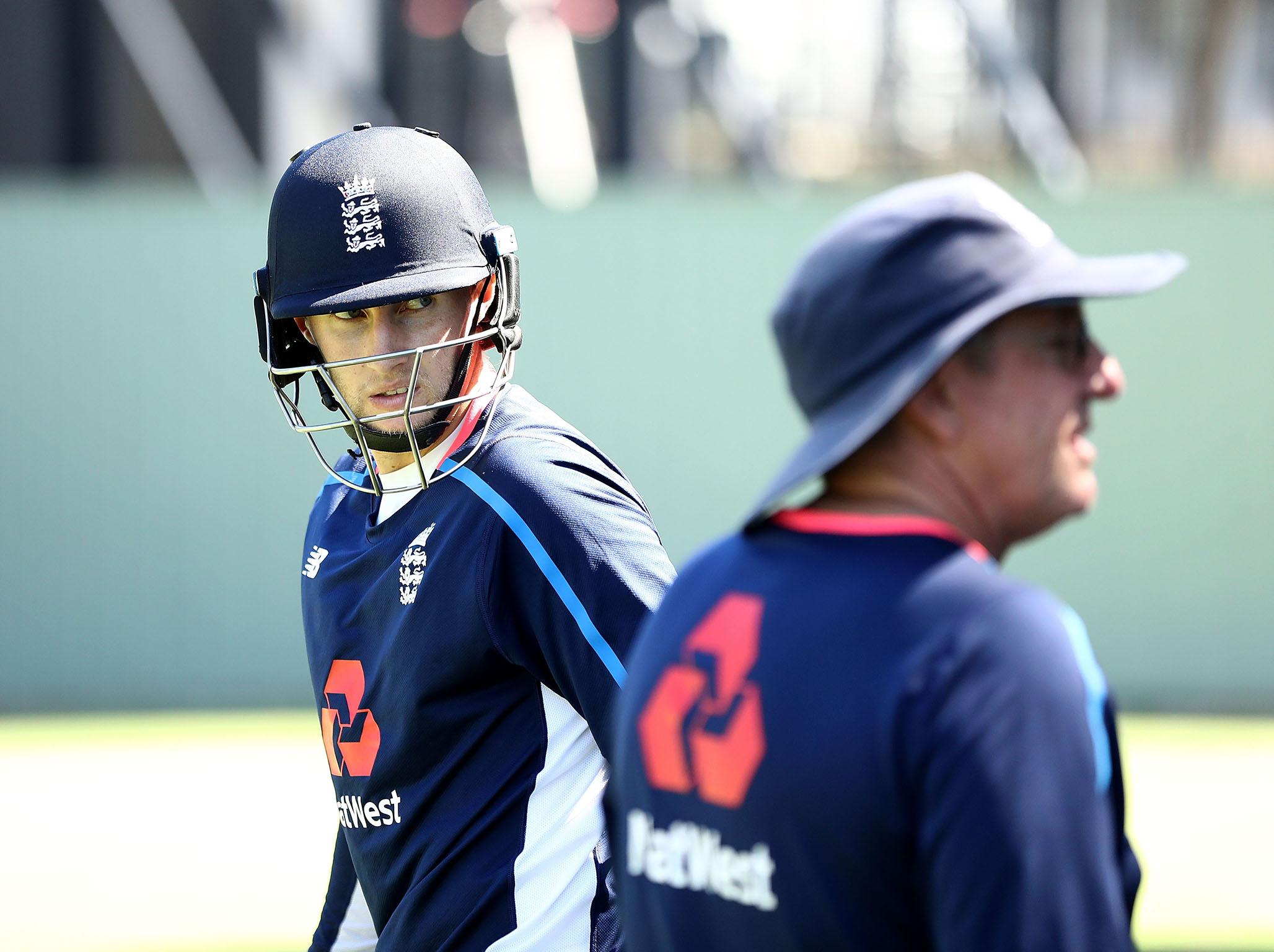Ashes 2017: England head to must-win third Test at the Waca desperate to buck a trend of bad memories
England do not have a good track record in Perth but must find the winning ingredients when the third Test starts on Thursday or else they will lose the Ashes – and move closer to a whitewash

Perth, for better and worse, is not what it was. Once an isolated, hard-bitten, mining outpost derided in the eastern metropoles for its gaudy wealth, lack of sophistication and roaring 4x4s, it is now one of the southern hemisphere’s most exciting cities: a flourishing hipsters’ honeypot with arts festivals, free buses and a lively food scene. Some things have stayed the same: the incredible weather, the pristine beaches, the eye-watering prices and the near-impossibility of getting a drink after 11.30pm, although England seem to have successfully negotiated that one.
The Waca, too, has seen its fair share of changes since its first men’s Test in 1970. For most of its life, it was the fastest wicket in the world. When Dennis Lillee and Jeff Thomson slung it down on the hard-baked clay, Perth was a test of courage as well as batsmanship. That is no longer the case. Successive re-layings and drop-in pitches have cost the Waca its hard-earned reputation as a pace paradise. Nor is it the home fortress it was in the time of Steve Waugh: Australia have lost four of their last nine here.
The third Ashes Test, which starts on Thursday, will also be the last at the Waca. A vast new 60,000-seat entertainment bowl is being built just across the Swan River, and will be ready in the new year. One last chance, then, for England to break one of their most ignominious records at an away ground, even by Australian standards: a single win against a Packer-ravaged Australian side in 1978-79 in 13 attempts.
Perth has long been a graveyard of English dreams. On four of the last six tours it was where the series was decided, and the bad memories run deep: Graeme Swann being hit into retirement by George Bailey in 2013-14, Mitchell Johnson ripping them open in 2010-11, Adam Gilchrist destroying Monty Panesar in 2006-07 on his way to a 57-ball hundred. History tells us Perth is a tough ask at the best of times. And for England, these are very far from the best of times.
Joe Root had five months to prepare for the captaincy, two months to prepare for this tour. And yet he admits now that even at his most fatalistic, he had underestimated how much it would take out of him. “I don’t know how I’ve still got all my hair,” he quipped wryly ahead of a Test England cannot lose, but probably will.
“I knew it would be challenging. And I knew there would be stuff around the cricket. But not to this extent, if I’m brutally honest. I’m fed up talking about stuff that’s not cricket.”
The various off-field fripperies of recent weeks, and their footprint, have hit this group of players hard. Resentment is not too strong a word. And so England arrive in Perth battling on multiple fronts, trying to salvage not just this series, but their careers, their reputations and possibly even their sanity.
“As you all know,” Root said, addressing the media, “it’s not a fair reflection of this group of players. You all see how hard we work in practice. You see how we go about our business and the extra stuff we do. It’s annoying that a lot of the talk is about stuff off the field. Ultimately, the only way we can change that is by winning games of cricket.”
And it is here that England’s two worlds – the inner world of lower-order collapses and wasted short balls, the outer world of internet headlines and midnight curfews – collide, in the form of a person who is not even here. The shadow of Ben Stokes – who announced his spectacular talent in Perth four years ago with a brilliant century – still hangs over this side. England’s four biggest deficiencies in this series are stability in the middle-order, the ability to counter-attack, reverse swing with a Kookaburra ball and the fearless combativity required to win cricket matches in Australia. The return of Stokes – now seemingly impossible – would solve all four at a stroke.

So: how do England do it? Winning a third straight toss and batting first would be a good start. Shield games and recent Tests have lent weight to the theory that the Waca is no longer a fast bowler’s picnic but a batsman’s Eden: a true surface, bounce that sits up without flying through, a quick outfield, short straight boundaries, very little turn to speak of. Nathan Lyon averages 50 here, which makes you slightly fearful for Moeen Ali.
Groundsman Matt Page, in his last Test before he moves to the MCG, has promised a quicker surface than the last two, which have seen South Africa score 540-8 declared and New Zealand smash 624 in reply to Australia’s 559. But with the new drop-in pitches offering more friction than their predecessors, there is only so much a skilled horticulturalist can do. This is England’s best chance of making a big score all tour. James Vince, on borrowed time at No3, is surely on his last warning.
Lose the toss, though, and England’s problems really will multiply. This was the ground on which Matthew Hayden scored a world-record 380 in 2003, and even if that may be beyond David Warner here, he is due a score at a ground where he adores batting and averages 89. The lack of variety in England’s attack remains a problem, and with the extra carry in the surface, catches will fly. Sideways movement, either reverse swing or conventional, using the stiff Perth breeze, is a must.
For Australia’s part, the likely selection of all-rounder Mitchell Marsh as a replacement for Peter Handscomb is an admission that their fast bowlers may have more to do than usual. England’s strategy of taking Mitchell Starc, Pat Cummins and Josh Hazlewood into third and fourth spells has had limited success so far, but with Lyon likely to be less of a threat here, Australia may well need that fourth seamer here.
A draw seems likelier than an England win, which should give England some hope if they have a bad first couple of days. Of course, an Australian win is far likelier than both, but the expectation that they will seal the Ashes in Perth may have an inhibiting effect on them. “If we win this week and go to Melbourne 2-1,” Root insisted, “then the whole dynamic changes. We still believe we can win the series. But we now need to prove that to everyone else.”
Earlier, Alastair Cook had explained how England needed to rebuild its bond with its fans. The caricature of this side as lairy villains has never quite held true: on Tuesday, for example, five of the squad went to visit a terminally ill England fan in Perth who will be unable to attend the game.
They didn’t have to. It wasn’t a photo opportunity or sponsor’s event. But as Root explained: “We are good blokes and good human beings,” he said. “We care about each other. And we are only going to win and get back into this series if we stick together. It’s time to stand up. These are the games in the face of adversity, that when you get them right, really hit home with people.”
Time to stand up and be counted, England. Unless things turn around in Perth this week, though, they may only need to count to five.
Join our commenting forum
Join thought-provoking conversations, follow other Independent readers and see their replies
Comments
Bookmark popover
Removed from bookmarks